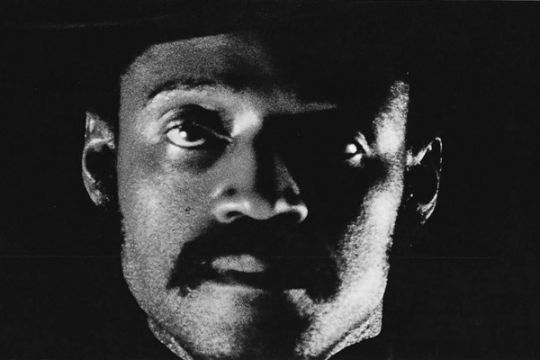Sweet Sweetback's Baadasssss Song

Synopsis
Conceived and directed by its star Melvin Van Peebles, Sweet Sweetback's Baadasssss Song (1971) is a controversial and landmark classic of Black Cinema and independent filmmaking. It was the highest grossing indie of 1971 (out performing Love Story) and is justly credited with kick-starting the Blaxploitation genre. Over thirty years after its release, Melvin's son Mario Van Peebles re-told the story of its making in Baadasssss! (2003). In 1971, when most scripts portrayed African-Americans as helpless slaves or 'super-Negroes', Melvin pitched to Hollywood a celebration of urban black power – the story of a black street hustler turned revolutionary who goes on the run after killing two racist cops. Hollywood wasn't ready, but Melvin wasn't in the mood to give up easily. Working on a shoestring budget, he shot the film in 19 days. In order to secure a multi-ethnic crew and dodge the all-white unions, he disguised the production as a porn flick. He persuaded a young band looking for a break, Earth, Wind & Fire, to record a soundtrack.Street hustler Sweetback, the film's star, has learned the ways of the world through being brought up in a brothel and earned his name through his legendary sexual prowess, cementing his reputation night after night to an audience of hopheads and hipsters hungry for spectacle. One night on a routine cover-up job with two crooked cops, Sweetback watches a young black man get beaten within an inch of his life and decides to fight back. His actions set in motion a journey through the dark heart of 1970s urban America, encountering motorcycle gangs, Black Power militants, fascist public officials and a torrent of insatiable women every step of the way. The film has a distinctive gritty style in keeping with the independent spirit of the times, combining the streetwise realism of Paul Morrissey with the sexual hysteria of Russ Meyer. A brash depiction of urban African American life previously unseen on the screen, its political resonance was confirmed in the Black Panthers' vocal acclaim of the film as a 'revolutionary masterpiece.' It sparked the birth of independent Black Cinema and has been cited as inspiration by directors such as Spike Lee and Quentin Tarantino.
NB. In order to comply with UK law (the Protection of Children Act 1978), a number of images in the opening sequence of the film have been obscured.